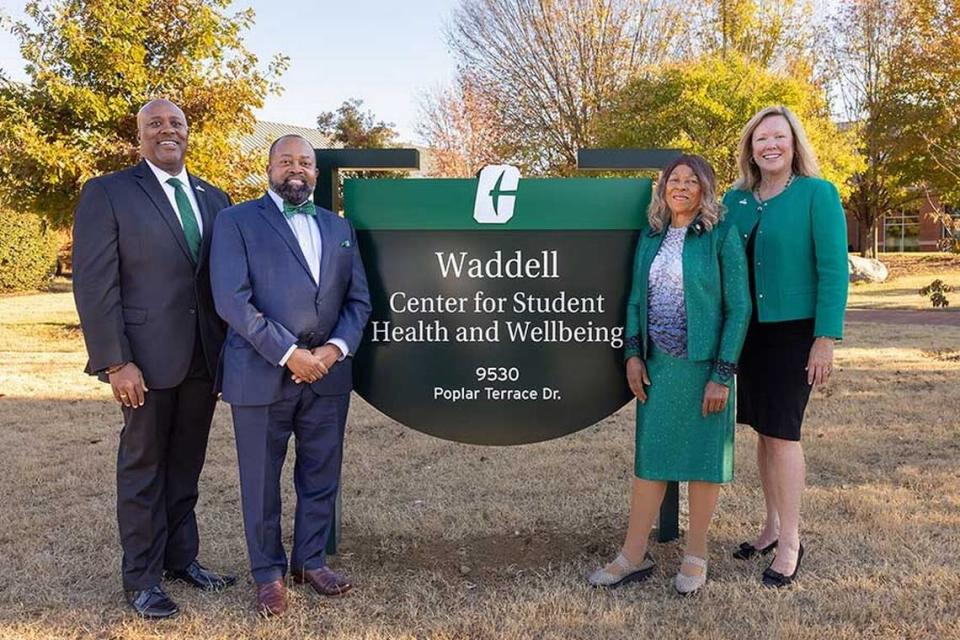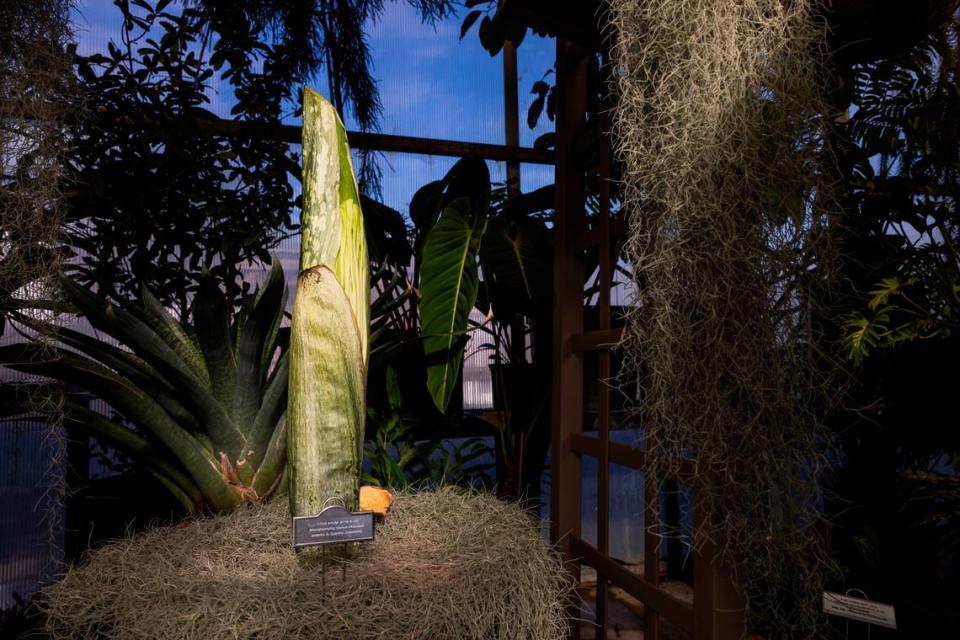Dean’s List: ‘We earned our spots at Carolina.’ Affirmative action claims get pushback at UNC
About six months after the U.S. Supreme Court declared UNC-Chapel Hill’s consideration of race in admissions unconstitutional in a landmark ruling, the topic continued to be a point of contention at a meeting of the university’s Board of Trustees last week.
The board’s external relations committee on Wednesday heard a guest presentation from Heather Mac Donald, a fellow at the Manhattan Institute, a conservative think tank, and author of several books, including “The Diversity Delusion: How Race and Gender Pandering Corrupt the University and Undermine Our Culture” and “When Race Trumps Merit: How the Pursuit of Equity Sacrifices Excellence, Destroys Beauty, and Threatens Lives.”
Mac Donald spoke mostly on the Supreme Court’s decision to overturn affirmative action in college admissions, praising that decision and the UNC board’s action after the ruling to prohibit the university from considering “race, sex, color or ethnicity” in hiring and admissions.
Mac Donald, in a speech that lasted 15 minutes and again in answering questions from trustees, asserted that the consideration of race in admissions led to unqualified and ill-prepared students of color being admitted to competitive, elite universities — something UNC denied it was doing throughout its almost decade-long defense of its admissions policy.
Eliminating the use of race in admissions “will greatly improve the ability of UNC to fulfill its mission of knowledge,” Mac Donald said. “What you must understand, if I may be so bold as to say so, is that racial preferences harm their alleged beneficiaries.”
Her assertions didn’t sit right with some board members, nor Chancellor Kevin Guskiewicz.
Welcome to Dean’s List, a weekly roundup of higher education news in the Triangle and across North Carolina from The News & Observer and myself, Korie Dean. We plan to publish this roundup in an email newsletter format soon, but we wanted to first give you a taste, on our website, of the insights on higher education trends and research you can expect each week.
This week’s edition includes more on that meeting at UNC, plus a decision by Davidson College to keep the name of a slave owner on an academic building, the exciting bloom of a smelly flower at Appalachian State and more.
Let’s get started.
Some UNC trustees push back on admissions criticism
Mac Donald attended the board meeting at UNC after giving a presentation the previous day at the invitation of the UNC Alumni Free Speech Alliance (AFSA), that group’s acting president, Doug Monroe, said in introducing Mac Donald to the committee. Monroe said Mac Donald speaking at the meeting did not mean the board was endorsing the ideas she presented, but he said he was a fan of her work.
At one point in her remarks, Mac Donald used a hypothetical scenario in which she was admitted to an elite university with a below-average math score on the SAT because the school “wanted more females in its freshman class for gender-equity purpose. She said doing so would have led her to “struggle” and “fall behind” and asserted that using race in admissions leads to similar situations while upholding the “diversity bureaucracy.”
Considering racial preferences in admissions, Mac Donald said, “called into being the massive diversity, equity and inclusion bureaucracy.”
“That bureaucracy exists to enforce a lie, and that lie is is that colleges are actively discriminating against and hostile to underrepresented minorities,” she said.
Trustee Ralph Meekins said he thought much of Mac Donald’s remarks about admissions perhaps reflected trends in higher education overall, but did not specifically apply to UNC. Meekins “took issue with several things” Mac Donald said about the Supreme Court’s decision, he said.
“First of all, UNC was not admitting students that were not qualified, and we were using a holistic approach,” Meekins said.
Regarding the assertion Mac Donald made that students of color who were admitted to the university struggled in their courses, Meekins said he had “talked to many of the students that were admitted over the years” and “they don’t agree with that.”
In July, Meekins also voiced opposition to the board’s resolution to prohibit the university from considering “race, sex, color or ethnicity” in hiring and admissions. Meekins said at the time that he felt the resolution went “well beyond the Supreme Court ruling.”
Chancellor Kevin Guskiewicz echoed Meekins’ sentiments and said he would welcome an opportunity to follow up with Mac Donald.
“There’s one thing I just want to be clear about, and that is that every student at Carolina has earned their way to Carolina,” Guskiewicz told Mac Donald. “I struggle with the assertion that administrators are admitting students who are ill-prepared to succeed here. We have good data to the contrary.”
Student body President Christopher Everett, who serves on the board in an ex-officio role, was not at the committee meeting Wednesday, but addressed Mac Donald’s presentation in remarks to the board Thursday by presenting a slideshow of several students of color — including himself — who are currently attending the university. He highlighted their accomplishments, such as serving as leaders of extracurricular clubs and their GPAs.
“The individuals that I just shared with you all are nothing less than extraordinary, and we earned our spots at Carolina, not because of the color of our skin, but because of the contents of our hearts and the will to make our university a better place,” Everett said. “We are not average. We don’t need handouts. And we definitely did not have to flunk out when we came to Carolina.”
Everett said he hoped the board, when making decisions about guest speakers in the future, would see him and the other students he presented and choose speakers who did not “question our worth.”
Everett’s remarks were met with hefty applause from meeting attendees.
UNC Charlotte names health center for state senator
UNC Charlotte named its student health center in honor of state Sen. Joyce Waddell, who holds a master’s degree from the university and is the first Black woman from Mecklenburg County to serve in the chamber.
“We are so grateful to Dr. Waddell for her transformative commitment to education and for supporting the health and wellbeing of UNC Charlotte students,” UNC Charlotte Chancellor Sharon Gaber said. “She is leaving a lasting legacy for current and future students.”

The center will be known as the Joyce Davis Waddell Center for Student Health and Wellbeing. Waddell has established a fund in the university’s student affairs division, also in her name, “to help students graduate prepared with the tools they need for successful lives,” the university said in an announcement about the center.
“I’m pleased to support programs here at UNC Charlotte that promote a healthy lifestyle. Health, mental health and learning must go together for a student to succeed,” Waddell said. “I’m proud to say that I have known every University leader from Miss Bonnie Cone to Chancellor Gaber. I think Miss Bonnie would be very proud of what this university has become.”
App State corpse flower to bloom
A corpse flower is expected to bloom this week at Appalachian State University, marking the plant’s first bloom since it arrived at the university more than a decade ago as a gift from the Atlanta Botanical Garden.
Corpse flowers, officially called “titan arum,” are known for their powerful stench. The plants require seven to 10 years to first bloom, then bloom at an unpredictable schedule every few years. The blooms last two to three days.

App State’s corpse flower is named “Mongo” after a high school nickname for Jerry Meyer, who has served as the department of biology’s greenhouse manager for 14 years.
The App State greenhouse is located at 211 Dale St. in Boone. Staff invite the public to view the flower Monday through Friday between 8 a.m. and 4 p.m. The exact timing of the flower’s bloom is hard to predict, but you can find updates on the flower’s status on the greenhouse’s Facebook and Instagram.
A corpse flower bloomed at N.C. State University this past summer, marking the second time in as many years that one bloomed at that university.
Davidson to keep name of slave owner on campus building
Davidson College, the private liberal arts college north of Charlotte, announced last week it would keep the name of a man who is believed to have enslaved people on its central academic building, The Charlotte Observer reported.
The Chambers building is named after Maxwell Chambers, a planter, money lender and cotton trader who “derived his wealth through the slave trade,” The Observer reported. Chambers was not a student at Davidson but left $250,000 — equivalent to $9.1 million today — to the college upon his death.
The college’s “Board of Trustees backed a recommendation from the school’s Committee on Acknowledgment and Naming to keep the name despite apparent complications and conflicts,” The Observer reported, including that “the school itself is named after William Lee Davidson, a general who fought during the Revolutionary War and was believed to have enslaved people.”
Learn more from Kendrick Marshall’s report in The Observer here.
Higher ed news I’m reading
As the Biden administration plans to extend overtime eligibility to millions of workers across the country, some colleges and universities are warning it could force them to raise tuition or lay people off, Inside Higher Ed reported.
Construction at NC State University is leaving some accessible parking spaces, for use by those with disabilities, occupied by construction vehicles, The Technician reported. A spokesperson for the university’s transportation division told The Technician, NC State’s student newspaper, that if accessible spaces are blocked due to construction, more spaces are typically made available nearby.
Sign up for our higher education newsletter
That’s all for this week’s round-up of North Carolina higher education news. I hope you’ll stay tuned for more in the weeks to come.
Like what you read here and want to be on our mailing list when the Dean’s List newsletter launches? Have suggestions for what kind of content you’d like to see featured in the future? Let us know by filling out the form below:

